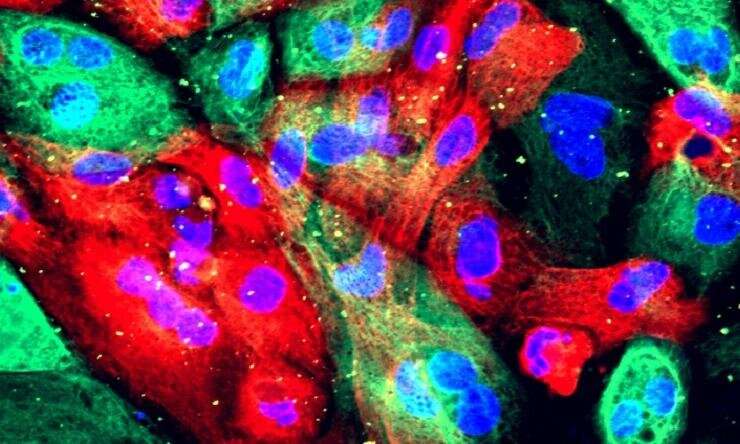Innovative AI-Designed Vaccine Offers Hope Against Aggressive Skin Cancer

Discover how researchers are leveraging artificial intelligence to create a innovative multi-neoantigen vaccine that boosts immune responses against aggressive melanoma, paving the way for personalized cancer immunotherapy.
Researchers have utilized artificial intelligence to develop a groundbreaking vaccine blueprint aimed at enhancing the body's immune response to combat melanoma, one of the most aggressive skin cancers. This innovative approach focuses on identifying specific neoantigens—distinct markers on cancer cells that signal their foreign nature to the immune system. By targeting these neoantigens, the vaccine can instruct immune cells, particularly T cells, to recognize and destroy cancer cells more effectively. The AI model initially analyzed 750 neoantigens and narrowed them down to eight key candidates, which were then integrated into a multi-neoantigen vaccine construct. This design not only promises broader effectiveness across various melanoma cell types but also increases the likelihood of overcoming immune evasion tactics like neoantigen escape.
The vaccine incorporates linkers—short amino acid sequences—that separate the neoantigens to prevent interference during immune activation, thereby enhancing its immunogenicity. Additionally, an adjuvant was added to amplify the immune response significantly. Computational testing indicates high binding affinity towards immune receptors, an essential step for provoking a robust immune attack. Although still in the theoretical stage and not yet tested in laboratory or clinical settings, this research marks a pivotal first step toward personalized cancer immunotherapy.
Dr. Saba Ismail, a Ph.D. student and lead author of the study published in Computers in Biology and Medicine, emphasizes that their current work focuses on melanoma but plans to adapt the model for other cancers. The overall goal is to streamline vaccine development, making it faster, more precise, and tailored to individual patients, ultimately offering new hope for those battling melanoma and other malignancies. The team aims to continue extensive laboratory testing and clinical trials to transform this promising computational model into practical treatment options.
This innovative approach showcases the potential of AI-powered vaccine design to revolutionize cancer treatment strategies, providing a faster pathway to effective, personalized immunotherapies.
Stay Updated with Mia's Feed
Get the latest health & wellness insights delivered straight to your inbox.
Related Articles
Reevaluating Low-Grade Prostate Cancers: Higher Risks Than Biopsy Results Indicate
New research indicates that some low-grade prostate cancers may pose higher risks than biopsy results suggest, urging a more comprehensive approach to diagnosis and treatment planning.
How Aging Contributes to Neurodegenerative Diseases
Recent research uncovers a molecular link between aging and neurodegenerative diseases, highlighting EPS8 as a potential therapeutic target to prevent toxic protein aggregation in the aging brain.
Navigating Pregnancy with Autoimmune Diseases: Challenges and Advances
Advances in medical research now enable women with autoimmune diseases to plan healthier pregnancies, despite ongoing challenges and risks. Learn about the latest treatments and strategies for safe motherhood.



